Research
-

Weiss participates in NSF advocacy day
As part of Vanderbilt’s ongoing federal advocacy efforts in support of federal funding for research and education at the National Science Foundation, Sharon Weiss, associate professor of electrical engineering and physics, traveled to Washington, D.C., for the Coalition for National Science Funding’s (CNSF) advocacy day and Capitol Hill reception on May 7. Read MoreMay 10, 2013
-

Profiling heart cells
A “profile” of the genes and regulatory networks that govern early heart valve development lay the groundwork for generating valves from a patient’s own cells. Read MoreMay 10, 2013
-

NIH grants bolster autism research, treatment efforts
Researchers at Vanderbilt University have received grant awards from the National Institutes of Health as part of the Autism Centers of Excellence (ACE) research program. The NIH announced grant awards of $100 million over five years to 11 centers nationwide, three of which feature projects from Vanderbilt Kennedy Center investigators, to further studies on autism treatment and intervention. Read MoreMay 9, 2013
-
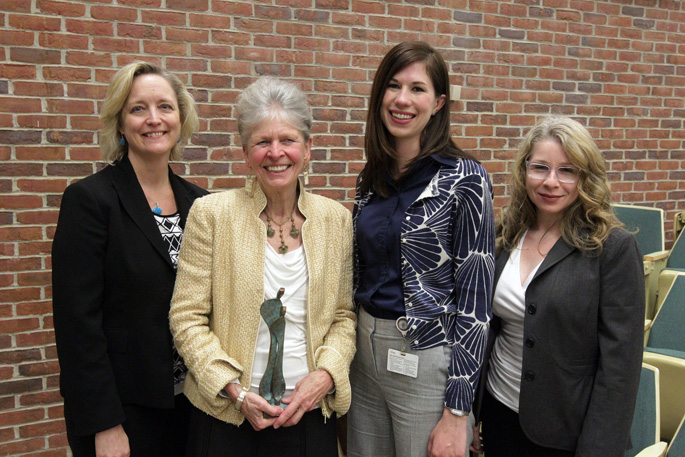
Lecturer seeks to unravel viral replication’s mysteries
Viruses are among the most confounding creatures on the planet. Read MoreMay 9, 2013
-
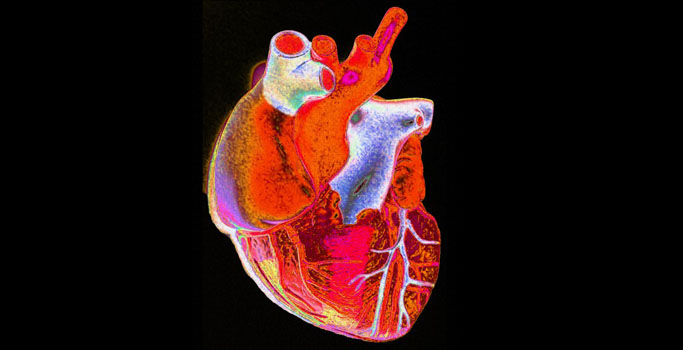
VHVI repository helps define cardiac disease mechanisms
Peggi Angel, Ph.D., research instructor in Biochemistry, studies congenital aortic valve stenosis in children. It’s a disease where the heart valve, which is normally very thin, becomes bloated with extracellular matrix. This occurs rapidly in some children but not in others. Read MoreMay 9, 2013
-
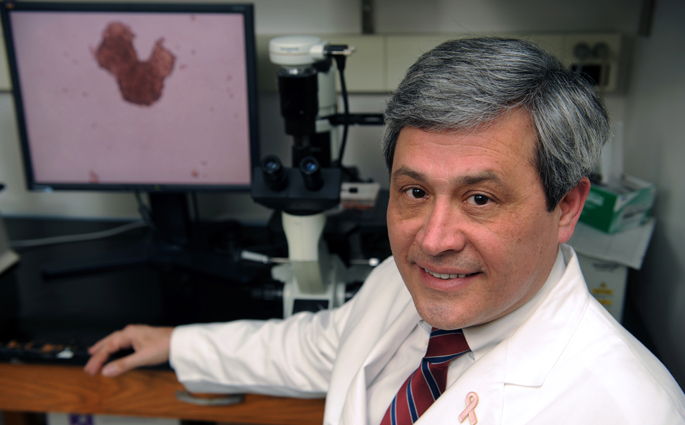
Arteaga to lead major new cancer research initiatives
Carlos Arteaga, M.D., professor of Medicine and Cancer Biology, has been appointed to lead two newly created cancer research initiatives at the Vanderbilt-Ingram Cancer Center. Read MoreMay 9, 2013
-

Dual-action enzyme protects esophagus
An antioxidant enzyme also functions as a tumor suppressor to limit cancer development in the esophagus. Read MoreMay 9, 2013
-

Learning in MOOC Years
"Eight weeks and 30,000 students gave me a crash course in the future of digital learning technologies," writes engineering professor Doug Schmidt in this Vanderbilt Magazine column on his experience teaching one of Vanderbilt University's first massive open online courses, or MOOCs. Read MoreMay 8, 2013
-

Public lecture on latest efforts to probe the fabric of space and time
UC-Santa Barbara physics professor Joe Incandela, a leader of the project that found the Higgs boson, will visit Vanderbilt and give a public lecture on the latest results from the Large Hadron Collider on Tuesday night, May 21st. Read MoreMay 8, 2013
-

John Wikswo at TEDx Nashville: The Homunculi and I
John Wikswo, Gordon A. Cain University Professor of biomedical engineering and A. B. Learned Professor of Living Physics, presented "Homunculi and I: Lessons from building organs on chips" at TedX Nashville April 6, 2013. Read MoreMay 6, 2013
-
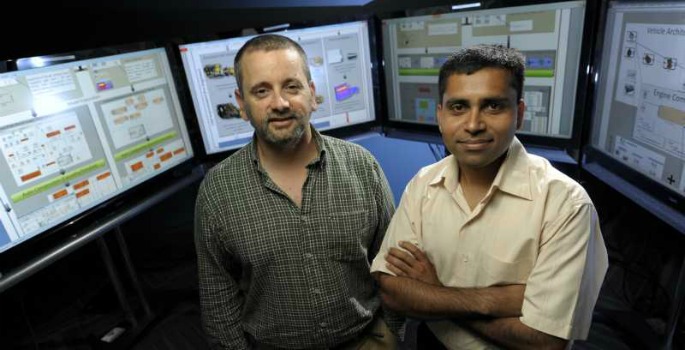
Vanderbilt wins $9.3M DARPA contract to evolve tools for military vehicle design
Vanderbilt University engineers in the Institute for Software Integrated Systems have been awarded a $9.3 million contract over two years to continue their work to mature META tools that are part of a flagship Defense Advanced Research Projects Agency Adaptive Vehicle Make (AVM) program. Read MoreMay 1, 2013
-

Vanderbilt’s role in new planet-finding space mission
A team of Vanderbilt astronomers will play a key role in the planet-seeking space telescope that NASA has just approved and scheduled for launch in 2017. Read MoreMay 1, 2013
-

Taking the ‘noise’ out of protein data
Vanderbilt researchers have developed a novel algorithm to improve results from proteomic studies. Read MoreMay 1, 2013
-

Consumer taste for high altitude beans shifts opportunity to small farmers
Economic prospects improved for small mountain farmers in Guatemala when consumers developed a taste for coffee brewed with beans grown at high altitude, according to a new study from the Vanderbilt Institute for Coffee Studies. Read MoreApr 29, 2013
-

Fava beans’ impact on urine sodium
Eating fava beans increases dopamine in blood and urine, but does not stimulate urinary sodium excretion. Read MoreApr 29, 2013
-

Factor reduces virus-related asthma attacks
An immune system factor associated with severe asthma may actually reduce asthma attacks induced by viral infections. Read MoreApr 26, 2013
-

Tracking gunfire with a smartphone
A team of computer engineers from Vanderbilt University’s Institute of Software Integrated Systems has developed an inexpensive hardware module and related software that can transform an Android smartphone into a simple shooter location system. Read MoreApr 25, 2013
-
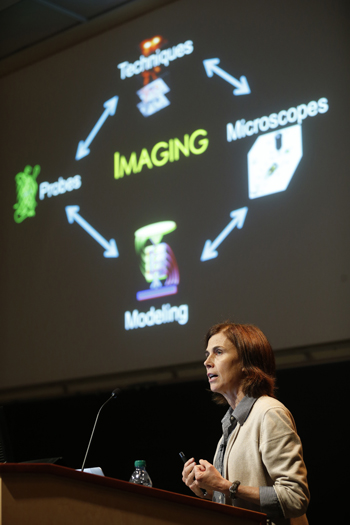
Events honor, celebrate VU’s women scientists
Vanderbilt University Medical Center is celebrating its women scientists with five events this month that feature inspiring women sharing their research achievements and lives. Read MoreApr 25, 2013
-
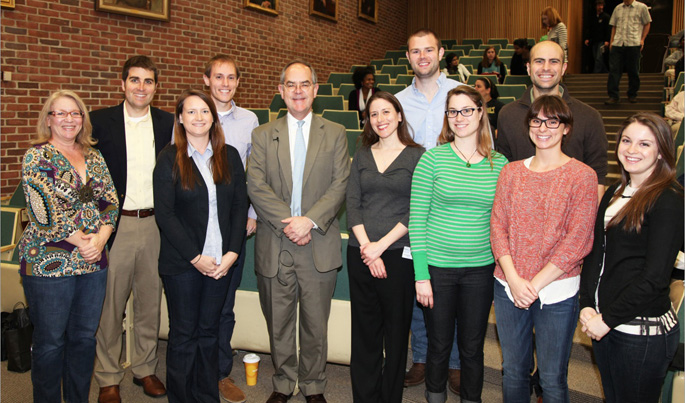
Coordinated messaging key to federal support: Cooper
In an era of budget cutting and belt-tightening, how can science get more support from the federal government? Read MoreApr 25, 2013
-
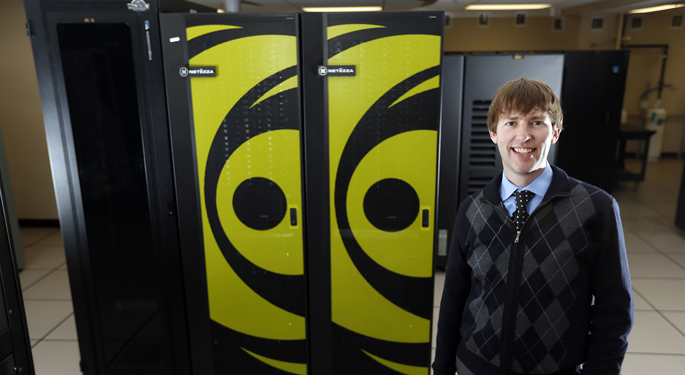
New computer speeds clinical data collection
Tucked in a data center in the basement of Vanderbilt University Hospital, a new computer the size of a large armoire, called a data warehouse appliance, is delivering a new order of speed to Vanderbilt clinical scientists as they search, filter, analyze and annotate the de-identified medical records of approximately 2 million patients. Read MoreApr 25, 2013